My year always begins and ends in August. Overall, this has been an exceptionally abundant year. I’ve felt productive in my personal and professional life, and the challenges I’ve encountered have demonstrated that problems and solutions are different sides of the same coin. Ease into one, flip it over, and you’ll see the other. Both function as guidance for new directions.
A few highlights
September 1: Begin writing comprehensive exams.
Before September 1.
- Immersion in three Reading lists as preparation for my PhD comprehensive exams
Ancient Egyptian consciousness via the world of magic, myth, tombs, funerary rituals and texts/spells: Pyramid Texts, Coffin spells, Book of the Dead, Books of the Netherworld, Harper’s songs…in short, mortuary literature that compelled incredible actions and performances. You might think this is too much death but on the contrary, it’s too much love of life! I’ve emerged from this list with deep respect, thinking that Ancient Egyptian Literature has got to be the spunkiest there is, what with the dead eating, seeing, speaking and commanding the gods to open the gates and accord them the afterlife! If I can borrow or transfer the same boldness into my writing and life, I would not have missed knowledge’s greatest instruction.
Liminality in postmodern literature, specifically in the works of Ali Smith. Why she matters— interpretative options—and the transformational possibilities that liminal spaces and circumstances provide. I’ve blogged a lot about this in my previous posts.
The Trickster figure in contemporary literature. Perhaps no other figure plays as seriously as the trickster, boundary-crossing, showing up in places he or she is least expected, messing and shaping narratives, never in one form but various manifestations: mythic embodiment of ambiguity, duality, contradiction… always hungry for change and trickery, today, yesterday, forever.
- Six-week summer seminars at Cornell School of Criticism and Theory June 14th to July 24th
This was a remarkable opportunity participating and studying with Eli Friedlander, Professor of Philosophy, leading the topic, On Affinity: Nature, Language, and Love. I was investigating how we read and interpret literary works across cultures, languages and disciplines, focusing on stylistic approaches to meaning, the principles and practices that inform our judgments, and how creative writing can interact with criticism to generate new forms and poetics without necessarily abandoning the old ones. Discussing texts of 20th century literary criticism and philosophy such as Walter Benjamin’s ‘Goethe’s Elective Affinities,’ selections from Platonic dialogues, Kant’s Critique of Judgment, Hegel’s Aesthetics, 19th century writings on the philosophy of nature, Kierkegaard’s examination of love, guilt and the daemonic, as well as Stanley Cavell’s writings on skepticism and romanticism provoked new explorations of criticism, creativity and commentary, form and content. I also enjoyed Souleymane Bachir Diagne’s focus and faith in Translation, his public lecture: The Ink of the Scholars: Reflections on philosophy in Africa, and Hent de Vries: Out of the Ordinary: The Everyday Revisited made me recall an incident in Ali Smith’s There But For The that involves Anna’s story written for an essay competition–a character wakes up after twenty years of sleep and discovers that in the new world writing is upside down. What could it mean? According to Mark Currie’s article, “Ali Smith and the Philosophy of Grammar”, in Ali Smith: Contemporary Critical Perspectives, ed. M. Germana and E. Horton, the answer might be in the following sentence spoken by one of the characters in the novel: “To describe something indescribable you sometimes translate it directly into something else, or join it with something else so the two things become a new thing.” Since most of Smith’s work is as much about writing as it is about life, Currie suggests that “Writing is upside down here because there is something inverted about any imagined universe, and the new thing that comes about from the conjunction of writing and inversion is a kind of inversion of the relation between what is literal and what is metaphorical.”
On the other hand, we can think of a philosophical explanation coming to us through Stanley Cavell’s Philosophical Investigations about language games, the need to revisit the words in their original language and claim them from the metaphysical place back into everyday use, which seems to be what Smith is doing. Cavell says, “We have already been at the place we are trying to get to, [future, past or present] philosophy has no other.” T.S Eliot says the same thing but adds an aspect of unlearning and relearning: “We shall not cease from exploration, and the end of all our exploring will be to arrive where we started and know the place for the first time.” Therefore, it makes sense to me that Cavell’s perspective urges us to “welcome the idea of returning words to the circulation of language and its (sometimes unpredictable) projections rather than keeping them in some imaginary service.” Back to Ali Smith, the future isn’t something that is far ahead and can be comprehensively described in an essay. In the ordinary present state, it will look like it’s upside-down because we cannot truly see or know it until we’ve lived it. Once we are in the future, its appearance will not surprise or even shock us. We would get used to it because we are in it. Trying to get to it through words, while remaining in our present ordinariness makes it seem upside-down. And if we are busy living our lives, we will recognize semblances of the future here and there, not divorced from day-to-day living. After the girl wakes up in Anna’s essay, despite the fact that she’s been sleeping for 20 years, what has changed astounds for only a few hours. By lunchtime, she isn’t noticing the words anymore. Currie says, “The surprising thing, that writing is upside down, first reveals the ordinariness and sameness of everything else, and then becomes ordinary itself, like the passing of metaphor into dead metaphor: it is the ordinariness at the heart of surprise and the surprise at the heart of ordinariness,” and adds that in Anna’s story, the novel finds a metaphor for itself, “this logic that conflates the ordinary with the surprising, is also the logic that governs the novel’s central aesthetic choice. It focuses on the stranger who has barricaded himself in a family home, because this too creates an emblem of something surprising (the arrival of the stranger) and something ordinary (the domestic routine), as if Miles himself embodies something of the logic of the becoming dead of metaphor.”
- BN poetry judge 2015
Read thousands of poems from which there would be one winner ad two runner-ups. I discovered that finding the best poems wasn’t difficult because the process of judging poetry or any other creative work for that matter is shaped by the submissions themselves. Having a large sample to choose from was also an advantage. At the beginning you have no idea which poem is going to strike you in a unique manner, tug at your heart-sleeves, so to speak, even haunt you with its freshness, madness, attitude, form, message, voice, inventiveness, and so on. But you will know and recognize that poem in the process of reading all the poems. At least, that was my experience. After getting the “best” poems, you may then try to figure out why those in particular have connected with you and produced such a profound effect. That’s when you may notice that they’re saying something old in a new way, or the manner in which they balance radical opposites may be impressive, for instance, clarity and mystery, loss and fulfillment, personal and political all at once, or how competent they play language games, how they employ humor or sadness, beauty or grief, in short, how they make you feel, think, and see the world. It is a subjective experience that comes from the poems themselves than a preset criteria.
- Editing Kampala City poetry Anthology: Boda Boda Anthem and Other Poems, Babishai Niwe, publication, 2015
This was very exciting to experience the city that I know, or at least claim to know, through other poet’s perspectives. I was humbled, thrilled, enlightened…so my foreword begins like this: Kampala poems reveal various faces of the city in its daylight and night, while at the same time journeying into history and bringing back the borough that was first owned by impala. Forward into present, modern times and we have poems of becoming, which after fifty years of independence from colonial rule, remain unpredictable, unstable, continually transforming in the dreams of the people who lead and shape the city… If you’ve read Italo Calvino’s Invisible Cities, you’ll understand that each city has its own charm, mystery, and strangeness that might seem more surreal than real. Kampala city is no different. No one poem sums it up and perhaps that’s a good thing. So many poems reckon with the possibility though, and it is these reckonings that are precious gifts to engage with.
- Teaching Introduction to creative writing poetry class.
One of the liberties I enjoy at DU is designing my own syllabus and coming up with cool authors for my classes. So in Spring 2015, I introduced Vasko Popa, Antonio Machado, Yannis Ritsos, and Juan Ramón Jiménez to my students and their reception was rewarding.
- Translation Project (ongoing)
Began translating Ishe-Katabaazi by C. B. Katiti, from Runyankole-Rukiga to English. I was inspired to take on this project by a Translations workshop class that I took in Spring 2015.
I grew up on the tales of Ishe Katabaazi, a trickster and fool, often the last to become aware that the joke is on him. In most of the 40 stories published in the book, Ishe-Katabaazi is portrayed as an eccentric, gluttonous fellow whose tricks revolve mainly around food. In some cases they pay off, in others they don’t. He is also a good story teller as you can see in this sample.
Ishe-Katabaazi, the storyteller
Ishe-Katabaazi was walking with his son when they saw a chameleon crossing the road. Ishe-Katabaazi stooped, picked up the chameleon and put it in his hair.
The son said, Dad, you’re always afraid of snakes and other animals, how come you don’t fear the chameleon?
The Dad said, The chameleon is king of all animals. Both people and animals respect it. Have you ever seen anyone kill it?
I’ve always wondered about that, the son said. Why do they call it the king of all animals?
There’s a story. But I won’t tell it to you now in case the dead come to take us away, if they find us telling stories in the daytime.
When they arrived home, the son reminded his dad. It is nighttime, he said, tell me how the chameleon became the king of all animals. I’ve always thought the lion was the king.
I will not delay any further, my son. The elders told me this story when I was young. Listen carefully. A long time ago, the animals had a king called Bboobbo. Unfortunately, he did not have a child to take over the throne. When Bboobbo was close to dying, he summoned all the animals big and small to a farewell meeting. All the buffalos, hyenas, snakes, lions, elephants, chameleons, hares, and so on, showed up. Bboobbo sat in the middle and saw that every animal was there. Listen to what I’m going to tell you, Bboobbo said.
Loud silence.
My children, as you can see I’m very old. I’m almost dying. I do not have a successor but I will not leave you without a king. I also want to know the next king before I die. And the king is going to come from among you. If I choose one for you, you will complain. If I tell you to select one amongst you, you will fight and kill each other. So here’s what I have in mind. I have taken the throne to Kararwe on Mt. Ikaranzyo. We will have a race. You will all compete and the first to sit on the throne will be king. Therefore, come back here tomorrow to begin the race.
We have heard you, king, the animals said. You have straightened things out. With that they retreated to their homes.
When morning broke, the sound of drumbeats shook the earth. All the animals assembled. The chameleon walked stealthily and attached itself to the tail of the fastest hare. Bboobbo stood in the center and shouted, Get ready. Get ready. Go!
Aya-ya-ya-ya-ya, watch the animals sprinting for the throne. Rigi-rigi-rigi-rigi, raising so much dust! The sun’s shadow behind them, light ahead of them. At high noon the fastest hare jumped in the lead.
Towards evening the hare got tired, but by then was several miles ahead of the other animals. The hare decided to rest by a tree and dozed off. A while later, the hare heard the galloping of the other animals and Nda-a-a-a! Sprang back into the contest. Before dark, the hare began climbing the mountain and ultimately approached the throne. Just as it was about to put its butt on the royal seat, the chameleon said, I was the first one here. The throne is mine.
The hare looked around, curious, how the chameleon could have reached the throne first. When all the animals finally appeared, they saw the chameleon on the throne, seated in the stately and dignified manner of a king. Then they surrounded and carried their new king to Bboobbo.
When Bboobbo died, the chameleon was sworn in. That’s why it changes color all the time, adapting royal clothes.
Katabaazi was very happy with the story. He now knew that the chameleon was king of all the animals.
—
- The Uganda International Writers Conference, organized by African Writers Trust, March 2015.
Here I was MC & host for the Public Reading Event. It was magical and the rest of the organized events thought-provoking. More on AWT site.
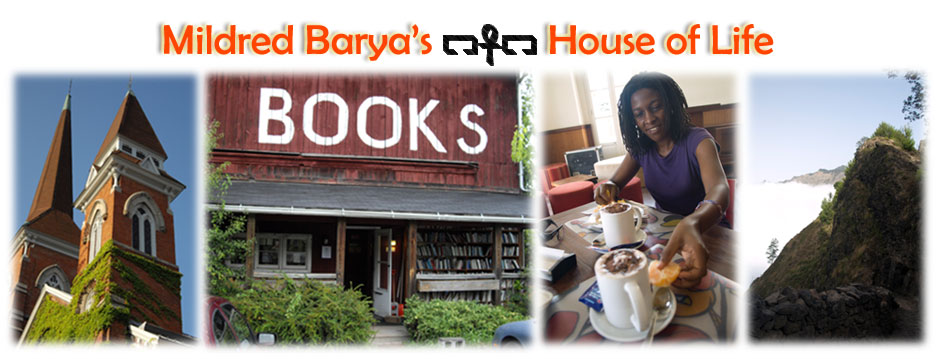
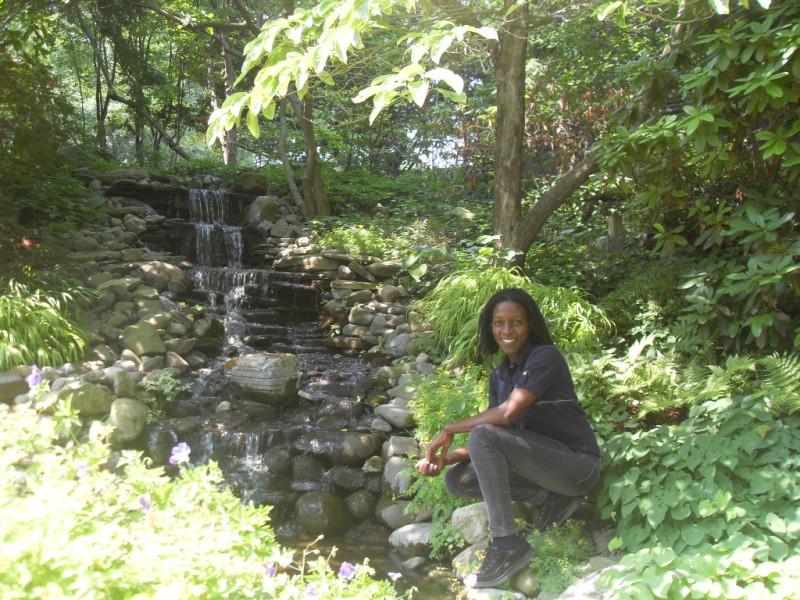
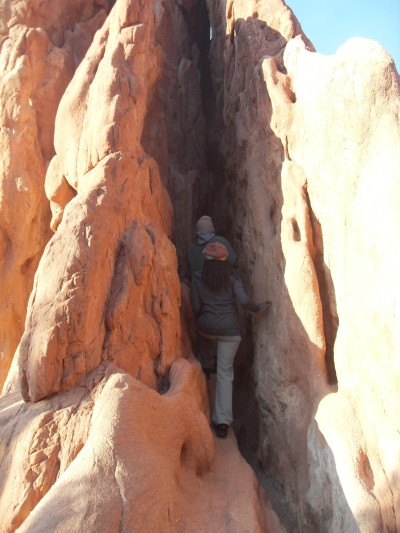
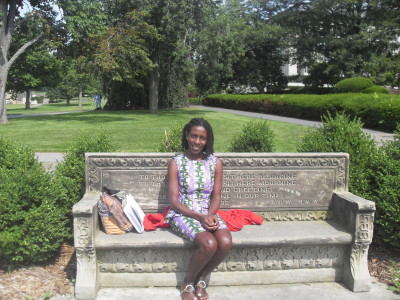


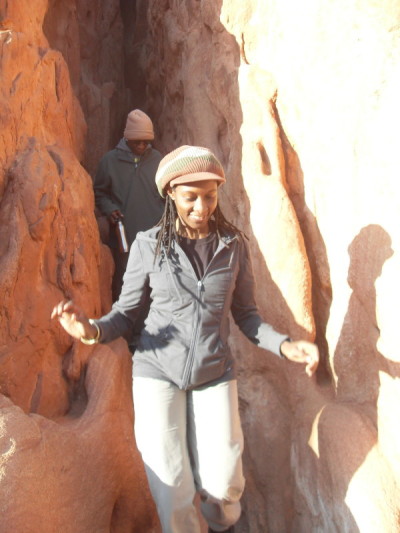
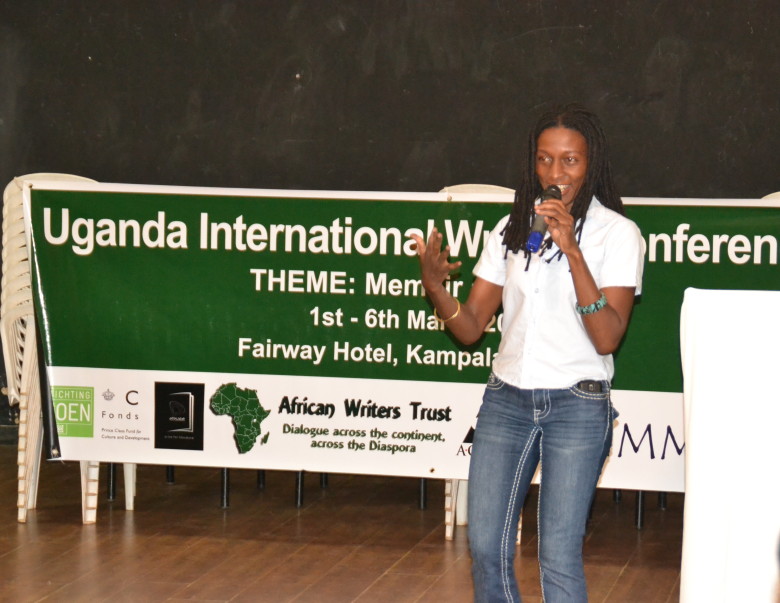




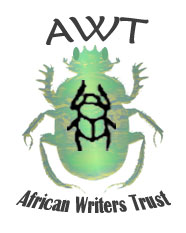
No comments yet.